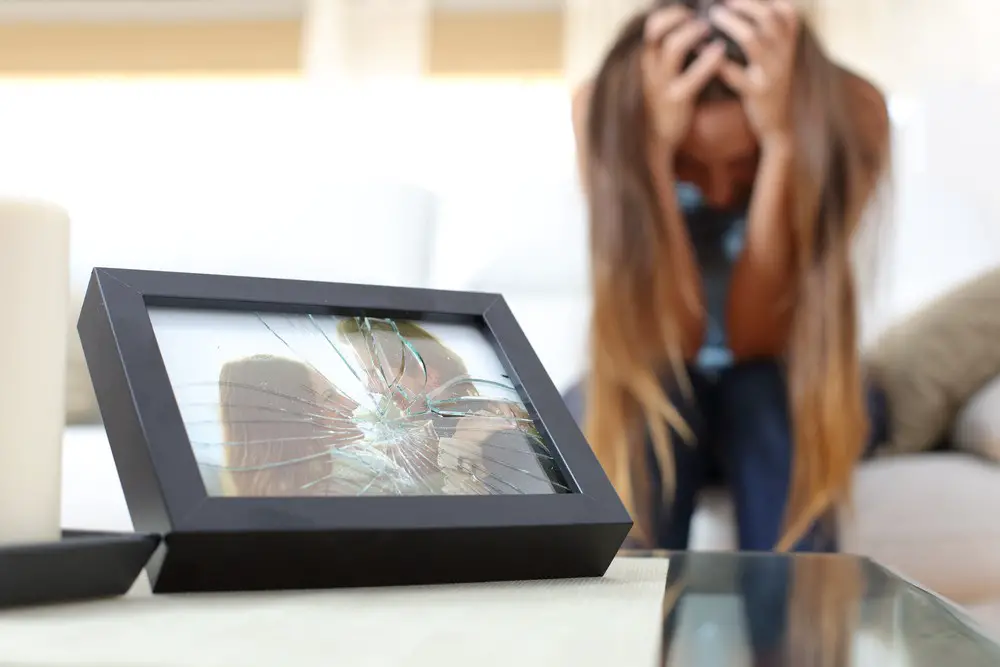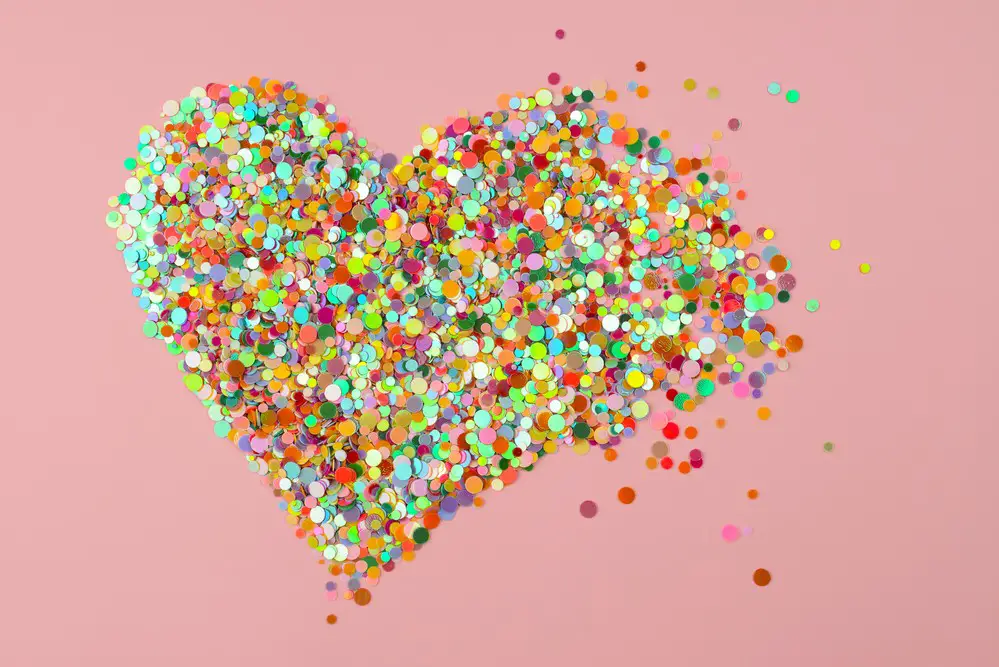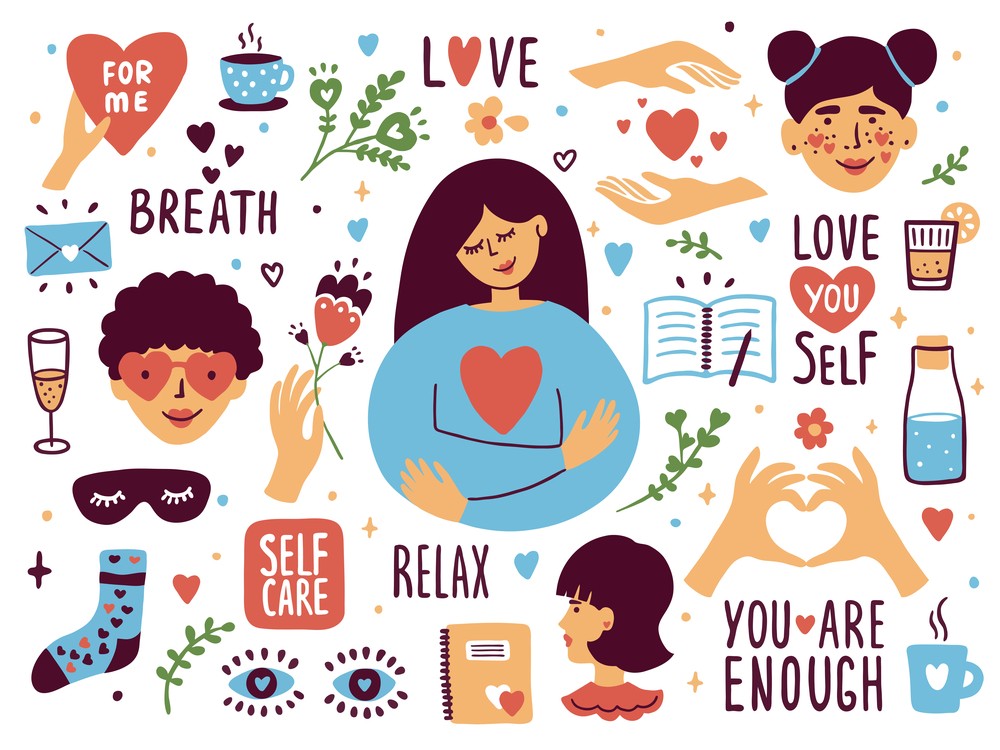As a BetterHelp affiliate, we receive compensation from BetterHelp if you purchase products or services through the links provided
Experiencing your first love can be a magical, unforgettable time. However, when that relationship comes to an end, heartbreak can feel all-consuming. Getting over your first love can be difficult and emotional, but it’s essential to personal growth and progress.
The healing process after a breakup is unique to each individual and may involve understanding the emotional impact, grieving the loss, and seeking support. While some may find solace in the company of friends and family, others may embark on a journey of self-discovery and self-care. Ultimately, the goal is to let go of unhealthy attachments and rediscover oneself as a single and independent individual.
Key Takeaways
- Grieving the loss of your first love is a natural and essential step in healing.
- Building a strong support system and practicing self-care can aid in moving forward.
- The process of healing entails letting go of unhealthy attachments and embracing one’s single self.

Understanding First Love
The Neuroscience of First Love
First love is a powerful and complex phenomenon, often experienced during adolescence. From a neuroscience standpoint, the brain shapes our perception and experience of first love. During this period, the brain undergoes significant changes, and the chemistry in romantic relationships is particularly potent. For instance, dopamine, a neurotransmitter associated with feelings of pleasure and reward, is released in greater amounts when we experience infatuation.
In addition to dopamine, the brain’s sensory areas also become more active during first love experiences. This heightened activity can create what is known as the “memory bump,” making memories of first love more vivid and enduring.
Why is First Love So Powerful
Psychologically, first love profoundly impacts an individual’s emotional development. Often, individuals view their first romantic relationship as a blueprint for future relationships. This is because our initial romantic experiences help shape our understanding of love and what it should look like.
Furthermore, first love can be powerful due to its connection to our earliest caregivers. Psychologists suggest that the bond between first love and the emotions experienced during this relationship may be similar to the attachment style formed with our primary caregivers.
In conclusion, first love is a multifaceted experience influenced by brain chemistry, psychology, and human development. Understanding the neuroscience and psychological factors contributing to the potency of first love allows for a deeper appreciation of this complex and transformative phenomenon.
 Emotional Impact of a Breakup
Emotional Impact of a Breakup
The Feeling of Heartache
When experiencing a breakup, it is common for an individual to feel immense heartache. This emotional pain often comes from losing the trust, closeness, and support they shared with their first love. The heartache may manifest as sadness, anxiety, and even anger as the individual struggles to process the end of an important relationship.
During this time, it is not unusual for the individual to experience contrasting emotions, such as brief moments of joy followed by deep pain. This emotional roller-coaster reflects the complexity of the mourning process and the wide range of emotions intertwined with the breakup experience.
Emotional Roller-coaster
As they continue navigating the aftermath of the breakup, the individual may notice that their emotions are not static but constantly fluctuating. They may experience a wide range of feelings, including:
- Sadness: Mourning the loss of what was once shared with their first love.
- Anger: Possibly stemming from feelings of betrayal, abandonment, or resentment.
- Anxiety: Worrying about a future without their previous partner and uncertainty about their self-worth.
- Joy: Reflecting on cherished memories or the prospect of personal growth and new opportunities.
This emotional roller-coaster is a natural part of the healing process, and the individual must acknowledge and accept these emotions as they arise. By doing so, they can better understand their feelings and, ultimately, work through them to overcome the emotional impact of their first love and breakup.

Grieving the Loss of First Love
Healthy Ways to Grieve
Experiencing heartache after the end of a first love is a natural part of the healing process. It is crucial to allow oneself the time to grieve and find healthy ways to do so. One effective method is talking to a trusted friend or family member about feelings of loss. Expressing thoughts and emotions can provide a much-needed release and relief.
Another approach is engaging in activities that boost mood and promote emotional well-being. Some examples include:
- Exercise: Physical activity releases endorphins, which improve mood and helps to alleviate feelings of heartache.
- Creative outlets: Drawing, writing, or playing music can assist in processing emotions and channeling them into a positive form of self-expression.
- Connecting with nature: Walking or hiking in a peaceful, natural setting can provide a calming and therapeutic environment for reflection and healing.
Accepting Your Feelings
Grieving a first love is accompanied by various emotions, such as sadness, anger, regret, and guilt. Acknowledging and accepting these feelings is an essential step in moving forward. Denying or avoiding emotions can prolong the healing process and may lead to unresolved issues.
To let go of a first love effectively, one must embrace their feelings and allow themselves the time to process them fully. It is normal to feel a range of emotions, and it’s essential to remember that there is no set timeline for grieving a lost love. Everyone heals at their own pace, and the process may take longer for some than others. Emphasize a non-judgmental approach when dealing with the varying emotions of losing first love.
In conclusion, addressing and processing the feelings surrounding the loss of a first love is vital for emotional healing. By finding healthy ways to grieve and accepting one’s emotions, individuals can gradually work through their heartache and begin moving forward with a renewed sense of self.
 Understanding the Healing Process
Understanding the Healing Process
Importance of Time
The healing process after a breakup inevitably takes time. It is important to be patient and allow yourself to feel the emotions that come with letting go of your first love. The time it takes to heal varies for each person, but it’s essential to respect the process and not rush it. Breaking away from an attachment can be difficult, but it is possible.
Give yourself space to feel and navigate through new experiences and emotions. As time passes, your perspective and understanding of the emotions you’re experiencing will likely change, gradually easing the pain and allowing you to move forward. Time is an invaluable aspect of the healing process.
 Therapy for Heartbreak
Therapy for Heartbreak
For some individuals, therapy can provide a helpful environment to process their emotions and thoughts after a breakup. During these sessions, a therapist can offer support, guidance, and techniques to help one heal and let go.
One beneficial aspect of therapy is its ability to help individuals learn to accept the current situation and adapt to a new life without their first love. Additionally, therapy can provide valuable tools for dealing with future emotional challenges and relationships.
In the journey toward healing and letting go, seeking professional help and utilizing available resources can be an empowering step. Remember, therapy is not a sign of weakness but a proactive approach to engaging and understanding your emotions.
Though the journey after a breakup can be arduous, understanding the healing process is crucial to ultimately reaching closure and moving on. Time and therapy are valuable components that allow one to navigate emotions, heal, and learn from their experiences.
The Role of Support System
Leaning on Friends and Family
A support system is incredibly important for individuals trying to get over their first love. Friends and family can provide comfort, reassurance, and guidance during this difficult time. One can heal by connecting with loved ones and sharing feelings and thoughts. It is essential to allow oneself to be vulnerable in this situation, so friends and family can effectively offer the necessary support.
Establishing boundaries with caregivers is also crucial, as it ensures that they understand the individual’s needs and wishes. This will lead to mutual respect’s roles in the healing process. Remember that a support system should comprise of people who genuinely care about the individual’s well-being.
Building New Relationships
As one deals with the aftermath of a first love, building new relationships with people with similar interests and values can be helpful. Engaging in social activities or joining clubs can allow one to meet like-minded individuals and form meaningful connections.
Being open to new experiences and friendships during this time can help boost morale and strengthen the support system. Additionally, embracing new relationships can teach valuable lessons about oneself and contribute to personal growth. Remember that healing is gradual, and building new relationships takes time and effort.
 Importance of Self-Care
Importance of Self-Care
Establishing Healthy Routines
Practicing self-care is crucial when trying to get over a first love. Establishing healthy routines can help one cope with the challenges and emotions that may arise. One important aspect of self-care is getting enough sleep. A good night’s sleep can provide a stable foundation for one’s emotional and mental well-being. Establishing a consistent sleep schedule can improve mood and promote overall health.
Incorporating new hobbies into daily life can be another beneficial self-care practice. They can help replace negative thoughts and feelings with something positive and provide a sense of accomplishment. Trying out new activities also presents an opportunity to meet new people and create new experiences.
Finding Joy Again
Allowing oneself to find joy again is essential to moving on from a first love. Practicing self-compassion can make this process easier. Treating oneself with kindness and understanding is important, acknowledging that recovery takes time.
One should also strive to forgive their first love for any hurt they may have caused. Forgiving allows for the release of negative emotions and allows a person to heal and grow.
Reconnecting with one’s passions and interests can be a powerful way to rediscover joy in life. This can involve revisiting old hobbies, finding new ones, and surrounding oneself with supportive friends and family.
Remember, taking care of oneself, both emotionally and physically, is a key component in the journey to move past a first love. One can build the resilience needed to continue growing and thriving through self-care, establishing healthy routines, and finding joy in life again.
Moving Forward After a Breakup
Learning to Trust Again
After a heart-wrenching first love experience, moving forward can be difficult. Learning to trust again is an essential part of healing. An individual must remember that not all relationships are the same, and not everyone will cause the same pain. Building trust begins with self-confidence, which allows a person to navigate new relationships with a clear perspective.
Taking time for oneself is crucial in rebuilding trust. This can involve making new friends, participating in social activities, and discovering interests outside relationships. Engaging in such experiences can help one regain confidence and better understand the characteristics needed in a future partner.
Creating New Goals
A vision for the future is vital when moving on from a breakup. Creating new goals provides a sense of purpose and helps redirect focus toward personal growth. These goals can encompass both short-term and long-term aspirations.
Here are some examples of goals to focus on:
- Personal growth: Develop new skills or hobbies, start a fitness journey, or explore spirituality.
- Career advancement: Focus on professional development, pursue higher education or certifications, or set milestones for career success.
- Financial stability: Save money for traveling, prepare for a big purchase, or create a plan to achieve financial independence.
Focusing on personal goals can help someone regain control of their life, feeling more accomplished and moved on from the past. With time, dedication, and a newfound sense of purpose, moving forward after a breakup becomes a transformative journey toward a happier, more fulfilled life.
 Avoiding Unhealthy Attachment
Avoiding Unhealthy Attachment
Avoiding Social Media Stalking
After a breakup, avoiding unhealthy attachment to your first love is crucial. One way to do this is to resist the temptation of social media stalking. Constantly checking their profile and updates can lead to an addiction, making it harder to move on. Instead, try unfollowing or blocking their accounts. This way, you won’t be triggered by their posts and can focus on healing.
In addition, consider taking a break from social media altogether. Dedicate the time to yourself and explore new hobbies or interests to reestablish your sense of self. Not only will this help you avoid the pitfalls of attached behavior, but it will also build your confidence in your ability to thrive independently.
Resisting the Urge to Rekindle
Some people might want to rekindle the relationship post-breakup, especially if it was bad. Remember that the relationship ended for a reason, and going back is unlikely to solve the issues that led to its downfall. Instead, reinforce why the relationship didn’t work and focus on moving forward.
To resist the urge to rekindle:
- Stay active: Engage in activities that promote well-being and self-improvement.
- Create distance: Avoid places and situations where you might encounter your ex. This will help minimize the chances of unplanned encounters.
- Lean on friends: Surround yourself with supportive friends who can listen and guide the healing process.
By following these measures, one can develop a healthier outlook and avoid becoming trapped in an unhealthy attachment to their first love. With time, patience, and self-care, the healing process will get easier, allowing you to grow stronger and more resilient.
Rediscovering Your Single Self
Reembracing Hobbies
After a breakup, individuals need to rediscover their single selves. Reembracing hobbies is an excellent way to refocus attention and build confidence. Engaging in activities that bring happiness can help create a sense of fulfillment. Enjoying hobbies, like painting, dancing, or playing sports, can boost self-esteem and stimulate personal growth throughout the recovery process.
Creating a Positive Outlook
A positive outlook is key to overcoming the loss of first love. It’s important to maintain a healthy perspective on the situation and embrace new opportunities for happiness. To create a positive outlook, individuals can practice gratitude, set achievable goals, and surround themselves with supportive friends and family members. By focusing on the positive aspects of life, a person can rebuild their confidence and pave the way for a brighter future as a single individual.
Frequently Asked Questions
How long does it take to move on from a first love?
It varies for each person as there is no specific timeline to move on from a first love. Factors such as the depth of the relationship and personal experiences influence the healing process. Some people may take weeks or months, while others might take years.
Why is it hard to overcome the memories of a first relationship?
First relationships often introduce individuals to strong emotions and experiences. Since it is a new experience, the memories can be profound and etched into one’s mind. The perceived uniqueness of a first love makes it difficult for some individuals to let go of those memories.
Do people ever truly forget their first loves?
While some individuals can forget their first loves, others may find it challenging. Memories may fade over time, but important life experiences can still leave lasting impressions. This does not mean one cannot move forward and be happy in other relationships.
What are some effective strategies for coping with a first breakup?
Coping strategies for a first breakup include maintaining distance from the ex-partner, focusing on self-improvement, finding new hobbies, seeking support from friends and family, and considering professional counseling if necessary. Taking the time to process the emotions and learn from the experience can help in personal growth.
How can one handle lingering feelings for their first love after marriage?
Handling lingering feelings for a first love after marriage might involve open communication with one’s spouse, concentrating on the positives of the current relationship, and seeking professional help if required. Acknowledging and addressing emotions while maintaining a dedication to the marital relationship is critical.
Is it normal to still think about a first love years later?
Yes, occasionally thinking about a first love years later is normal. As a significant life event, first love can leave lasting impressions. However, if these thoughts become disruptive to one’s life, seeking help from a mental health professional may be advisable.
About the Author: Jacob Maslow
Jacob Maslow is an impassioned advocate for mental health and a shining beacon of hope and resilience for those navigating life’s most challenging trials. As someone who conscientiously takes Lexapro for mental well-being and can proudly label himself a therapy veteran, Jacob believes in the transformative power of self-awareness and proactive mental health management. His preferred coping mechanism is the simple yet profoundly effective act of taking long, contemplative walks to rejuvenate his spirit and clear his mind.
His journey has been far from smooth, having been ensnared in the complications of dealing with a narcissistic ex-partner. The emotional distress of being disconnected from his children, with whom he once shared a tight-knit bond, combined with the relentless legal battles, has imbued him with a deeper empathy for others facing similar adversities. His ex’s repeated breaches of court orders and refusal to co-parent underscore the urgency of his mission: to shed light on the dark corners of such relationships and provide guidance for those feeling lost.
Jacob channels his experiences into his writings, penning insightful articles on mental health, narcissism, and the labyrinthine intricacies of relationships. Through these, he seeks to uplift and guide others, emphasizing that mental health triumphs are achievable despite the gravest challenges.
Supplementing his written work, Jacob also runs a legal site designed to offer a helping hand to those battling non-compliant spouses in court. In his latest piece, “How to Get Over Your First Love: Practical Steps for Healing and Moving On,” Jacob extends a hand to the broken-hearted, sharing valuable insights on healing and progress.
- Stress Management: What is the Relationship Between Stress and Addiction? - June 28, 2024
- Exploring Techniques to Maintain a Healthy Lifestyle without Drugs - May 28, 2024
- How Acupuncture Helps Treat Chronic Fatigue Syndrome - May 28, 2024
This site contains affiliate links to products. We will receive a commission for purchases made through these links.


 Emotional Impact of a Breakup
Emotional Impact of a Breakup Understanding the Healing Process
Understanding the Healing Process Therapy for Heartbreak
Therapy for Heartbreak Importance of Self-Care
Importance of Self-Care Avoiding Unhealthy Attachment
Avoiding Unhealthy Attachment

